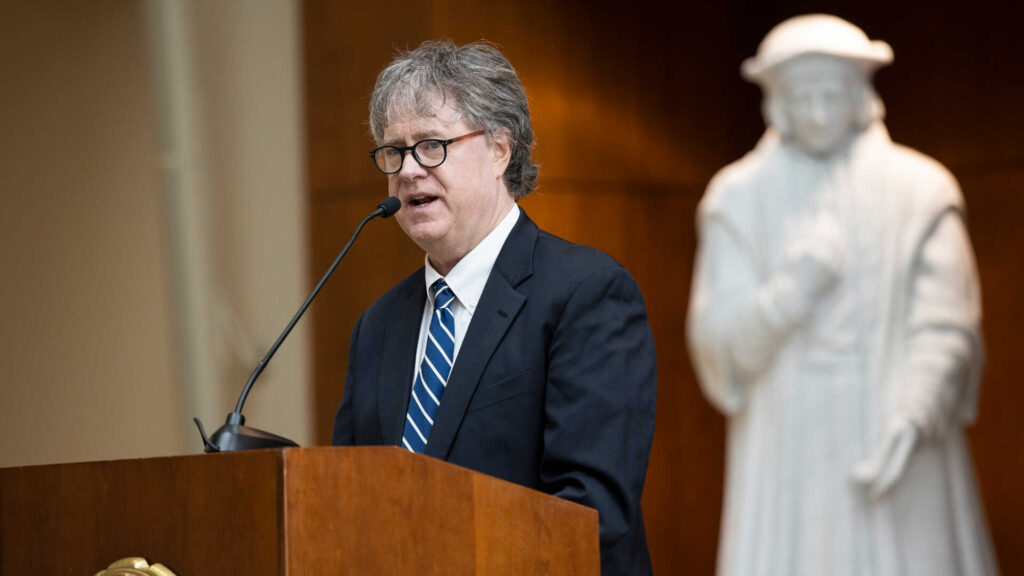The Ninth Circuit Court of Appeals ruled Dec. 15 that a pair of advocacy groups challenging an Arizona law that bans race- and sex-selective abortions did not demonstrate sufficient harm from the law— which the groups say illegally discriminates against minorities—and as a result upheld an earlier court’s ruling to dismiss their case against the state. University of St. Thomas School of Law Professor Teresa Collett , director of the St. Thomas Prolife Center, provided a thorough analysis of the legislative history of the Arizona law in an amicus curiae brief on the case.
The case, NAACP v. Horne, centers on the Susan B. Anthony and Frederick Douglass Prenatal Nondiscrimination Act of 2011, which prohibits doctors from “knowingly performing” an abortion on a woman who is ending the pregnancy because of the race or sex of the baby. In advocating for the bill, lawmakers cited high numbers of sex-selective abortions in Asian countries, as well as a peer-reviewed study showing that sex-based abortions are occurring in the United States in small numbers. Legislators also were concerned about the disproportionally high rate of abortion among black women in the United States. The plaintiffs on the case, the NAACP and the National Asian Pacific American Women’s Forum, argued that both of those justifications are based on stereotypes about people of color.
The original suit was filed by the ACLU on behalf of NAACP and NAPAWF in the U.S. District Court of Arizona, asserting that the law violates the Equal Protection Clause of the 14th Amendment. The state of Arizona, in defense of the law, argued that the plaintiffs did not demonstrate sufficient harm and therefore lacked standing. The District Court dismissed the case in 2013. On Dec. 9, 2015, the 9th Circuit Court of Appeals affirmed the district court, leaving the Arizona law in effect.
Banning sex- and race-based abortions has been a goal of the University of St. Thomas Prolife Center for several years. In 2011, Professor Michael Paulsen, one of the Center’s founding faculty, published a short essay entitled, “It’s a Girl,” in hopes of advancing public awareness and debate on the legality of sex-based abortions in the United States. A model statute banning such abortions has been the subject of two simulated cases in the School of Law’s Constitutional Litigation class, a course designed by the Prolife Center to introduce students to the complexity of abortion litigation. Students enrolled in the class have uniformly praised it for its balance and the practical skills they have acquired.
Collett said she benefited greatly from the student work on this issue when writing the brief to the 9th Circuit. “Sometimes students are surprised that I demand they make the best possible arguments in opposing regulation of abortion,” she said. “However they eventually come to understand that passing good laws requires a solid understanding of all sides of an issue—even one as hotly contested as abortion.”







